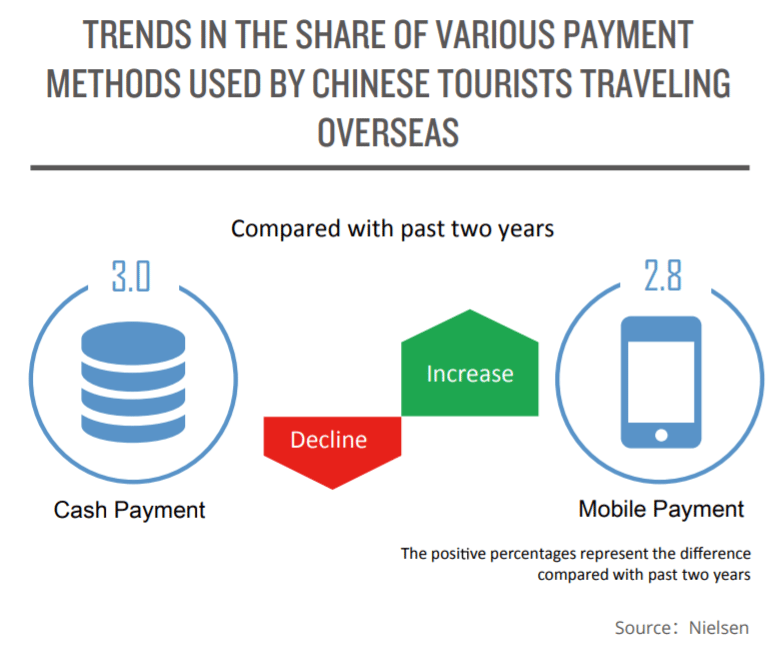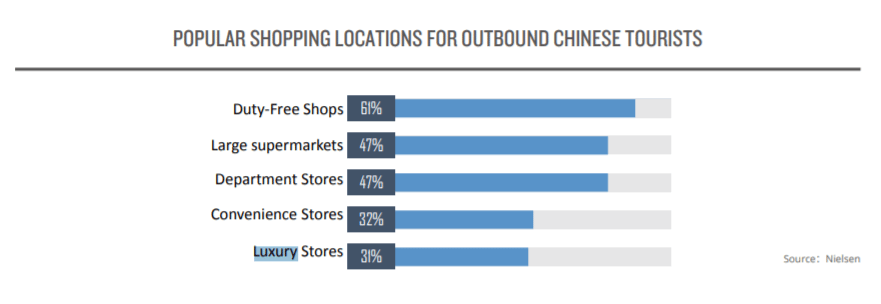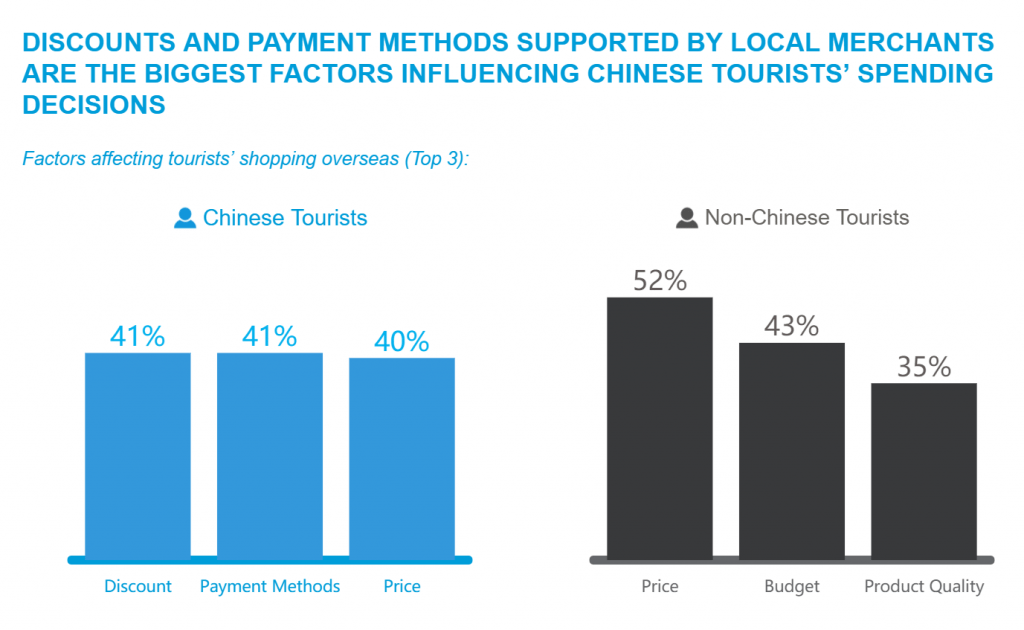The availability of Chinese mobile payment services such as Alipay and WeChat Pay is having a greater impact on the shopping decisions of Chinese outbound tourists than ever before. Security is a major driver of the preference for mobile payments, something that's especially important for luxury retailers selling big ticket items.
In the report Outbound Chinese Tourism and Consumption Trends: 2017 Survey, jointly issued by Nielsen and Alipay on February 28, 77 percent of Chinese tourists said they spent more using mobile payments on their most recent overseas trip than on trips over the past two years. Ninety-three percent said mobile payment was their preferred payment choice, and 91 percent indicated they would be more willing to spend if an overseas merchant accepted Chinese mobile payments.

According to the report, an average of 2.8 payments out of every 10 were made using mobile apps during Chinese tourists’ most recent overseas trips, a number that edged up 0.5 from two years before. Simultaneously, the use of cash payments dropped by 0.3 to an average of three in every 10 transactions. “More mobile payments, less cash” is a trend that is particularly obvious in the post-90s generation.
This payment trend has real significance for international luxury brands and retailers. Among affluent Chinese travelers, 61 percent shop at duty-free stores, 47 percent at department stores, and 31 percent at luxury boutiques. In particular, luxury brands and retailers in the United States and Europe should take note. The report shows that Chinese tourists' spend at luxury stores and outlet malls in these markets is much higher than in other countries and regions.

Security is the main factor that makes Chinese tourists more inclined to pay via mobile payments, the report said. When spending abroad, many survey respondents said they have concerns about paying twice or not being able to receive SMS transaction notifications when using their bank cards. They may also feel awkward or embarrassed if a card payment fails to go through.
Cash payments are also less favored as Chinese travelers are no longer happy carrying large quantities of cash when they travel. Chinese travelers find inputting a password or fingerprint on their mobile phones much more familiar — it has become the default way of paying in China — and secure.

As the Chinese economy continues to grow and the country’s middle class further expands, the number of Chinese travelers going abroad and the amount they spend are both also increasing.
According to statistics from the International Tourism Association, Chinese tourists spent approximately 260 billion dollars in 2016, up 4.5 percent from the year before. In addition, the number of Chinese outbound travelers grew by seven percent on a year-on-year basis, reaching 131 million last year.

